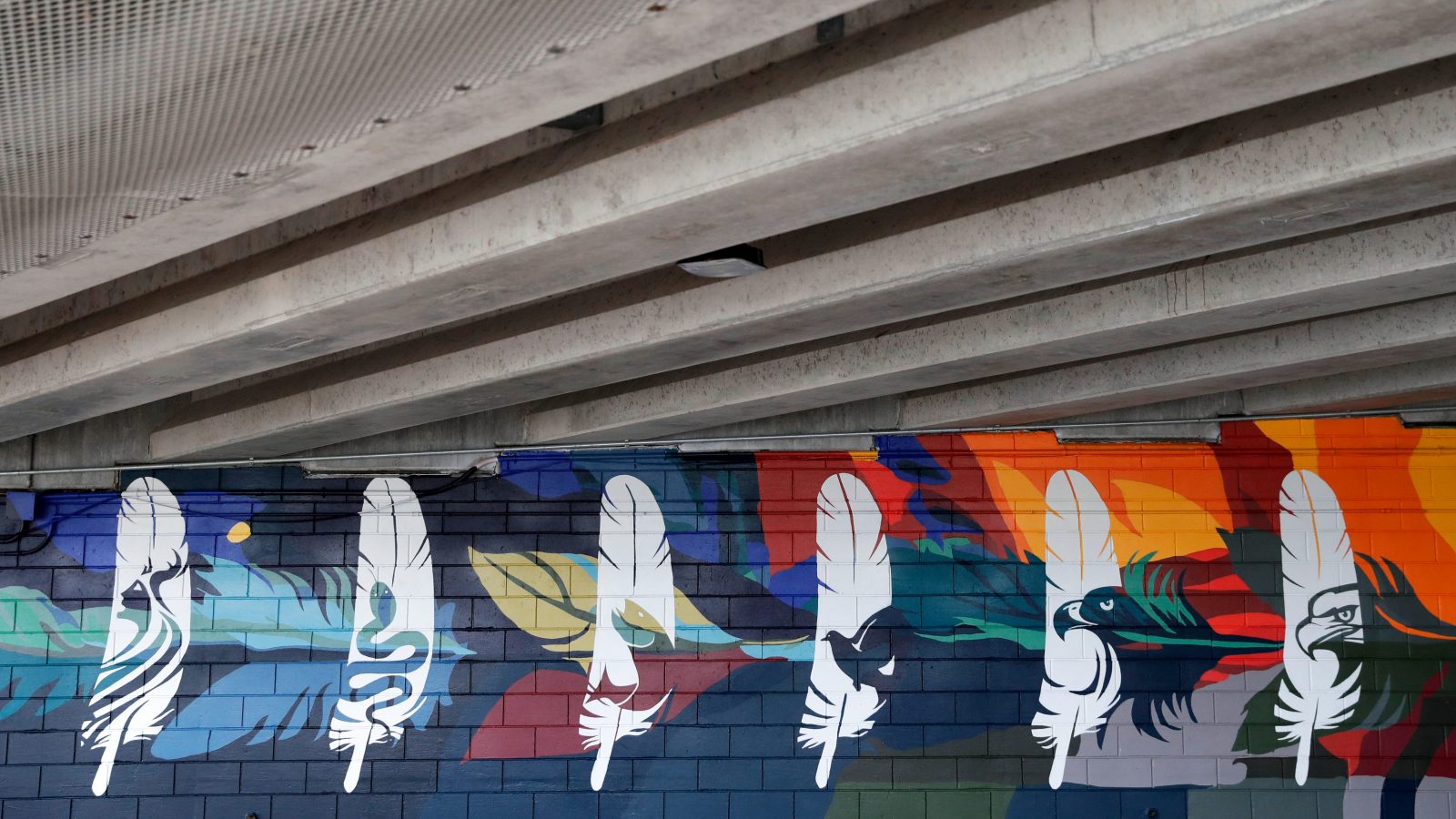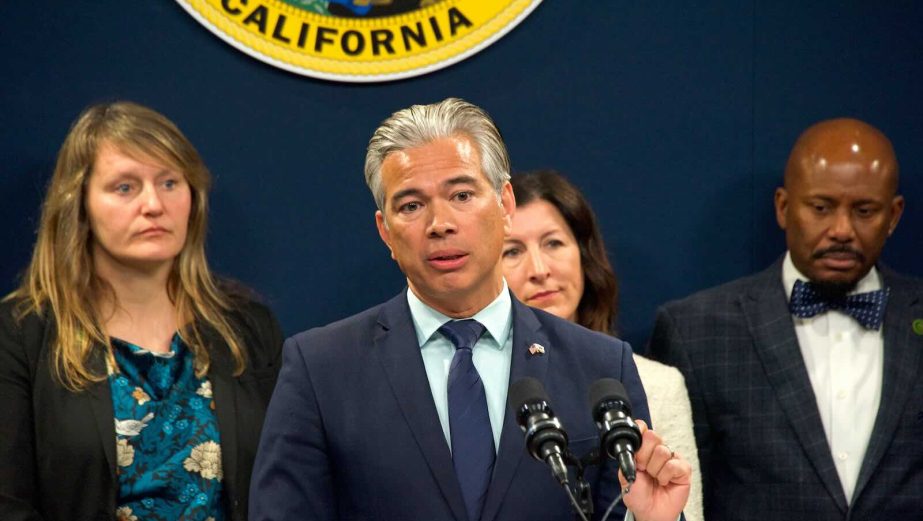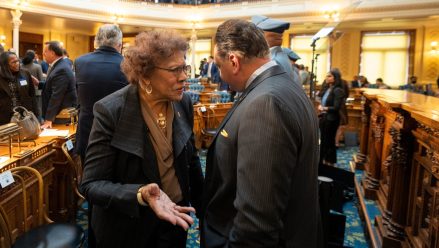The Ho-Chunk Nation of Wisconsin, a federally recognized tribe, has sued prediction market Kalshi and its partner Robinhood, arguing their sports event contracts violate racketeering and tribal gaming laws.
It’s the second case in which tribes have sued Kalshi for offering sports event contracts, after three California tribes — the Blue Lake Rancheria, the Chicken Ranch Rancheria of Me-Wuk Indians, and Picayune Rancheria of the Chukchansi Indians — filed a similar lawsuit in July. Both cases rely on similar arguments.
In its filing, submitted Wednesday in the U.S. District Court for the Western District of Wisconsin, the Ho-Chunk tribe argues that Kalshi and Robinhood are engaged in “illegal sports betting” on its lands — in violation of the Indian Gaming Regulatory Act (IGRA), which governs tribal gaming. IGRA gives tribes exclusive control over gaming on tribal lands, with sports betting — whether against the house or peer-to-peer — classified as a form of Class III gaming.
gov.uscourts.wiwd_.55038.1.0“Currently, 18-year-old high school students across the United States — including some that are located on Indian reservations — are on their phones placing bets on the outcome of virtually every sporting event occurring across the globe, without any regulation of that betting by states or Indian tribes and the protective measures related to corruption and problem gambling embedded in such regulatory schemes, in contravention of federal, state, and tribal law,” the tribe said.
“And they are placing those illegal bets using defendants Kalshi … and Robinhood.”
Suit: Kalshi ‘reversed course’ to offer sports
The complaint says that Kalshi’s sports betting offering is “disguised as event contracts.” It argues that while “true” event contracts serve a hedging purpose, such as hedging against the impact of high rainfall on crop yields, “betting on whether the Bears will win the Super Bowl serves absolutely no hedging or other economic purpose.”
It also points to Kalshi’s marketing activities, which frequently refer to “betting” and “odds.”
In addition, the tribe notes Kalshi previously argued that “Congress did not want sports betting to be conducted on derivatives markets” when it was trying to get courts to permit its election betting markets in a 2024 case against the Commodity Futures Trading Commission (CFTC). The filing says that Kalshi has since “reversed course” on this by offering sports event contracts and arguing that they are legal.
The tribe says that gaming-related event contracts, including those on the outcomes of sport events, are also not permitted under the “Special Rule” of the Commodity Exchange Act, which concerns contracts related to assassination, terror, war, or gaming. It asserts that the rule is a blanket ban on contracts involving those topics.
Kalshi has in the past argued that the rule simply gives the CFTC the option to ban contracts involving those topics if it determines that those contracts are contrary to the “public interest,” but does not require it to do so.
(C)Special rule for review and approval of event contracts and swaps contracts
(i)Event contracts
In connection with the listing of agreements, contracts, transactions, or swaps in excluded commodities that are based upon the occurrence, extent of an occurrence, or contingency (other than a change in the price, rate, value, or levels of a commodity described in section 1a(2)(i) [2] of this title), by a designated contract market or swap execution facility, the Commission may determine that such agreements, contracts, or transactions are contrary to the public interest if the agreements, contracts, or transactions involve—
(I)activity that is unlawful under any Federal or State law;
(II)terrorism;
(III)assassination;
(IV)war;
(V)gaming; or
(VI)other similar activity determined by the Commission, by rule or regulation, to be contrary to the public interest.
‘The Gaming Racket’ returns
Like the previous lawsuits filed by the California tribes, the Ho-Chunk groups Kalshi and Robinhood together as an entity it calls “The Gaming Racket.” Robinhood offers access to Kalshi’s event contracts via its “predictions hub” and makes a one-cent commission on every dollar of contracts traded. Robinhood was responsible for more than half of Kalshi’s volume during the three months leading up to June 30.
Given that the two companies worked together to offer a product that the tribe maintains is illegal, the Wisconsin filing — like the California filing — accuses Kalshi and Robinhood of breaching the Racketeer Influenced and Corrupt Organizations (RICO) Act.
The Ho-Chunk tribe also notes connections between Kalshi and the Trump administration, suggesting that friendly personnel in government and regulatory positions may be less likely to enforce laws against the business. It notes Kalshi’s appointment of Donald Trump Jr. as a “strategic advisor” as well as the fact that Brian Quintenz — President Trump’s pick to be the new CFTC chair — sits on Kalshi’s board. He will resign from that position if he is confirmed.
The tribe argues that Kalshi has been “prolific” in offering sports event contracts with the knowledge that the CFTC is “understaffed” and power could soon be “consolidated” in Quintenz, due to the resignations of other commissioners.
Case differs from Kalshi suits versus states
While most of the lawsuits involving Kalshi to date have resulted from the prediction market suing a state that attempted to have its sports event contracts banned, this case — like the California tribes’ case — differs in two key ways.
First, Kalshi is the defendant in the Wisconsin case, with the tribe calling on the court to ban Kalshi’s sports event contracts, as opposed to Kalshi calling on the court to block states from banning them.
Second, the case hinges much more on the interaction between two federal laws. Cases between Kalshi and the states of Nevada, New Jersey, and Maryland all deal with the question of whether the federal Commodity Exchange Act preempts state gaming laws. But IGRA is also a federal law, and tribal compacts derive their power from federal law, so the question of federal law preempting state law is not central to this case.
The tribe notes that courts have typically assumed that laws passed by Congress should not be interpreted as infringing on tribal rights unless there is clear intent to do so.
“Courts presume that when Congress legislates on Indian affairs, its intent towards the tribes is benevolent and federal statutes that arguably would abrogate or abridge tribal rights to self-government are narrowly construed in favor of the tribes retaining them,” the tribe said.
If the court were to find that Kalshi’s sports event contracts violate IGRA, it may be forced to block access to the contracts on tribal lands. If Kalshi wins its cases against the states, it may still be able to offer those contracts in the rest of the U.S.
However, in cases against states such as Maryland, Kalshi has argued that it cannot block access to its contracts by area as this would violate the CFTC’s requirement that it offers “impartial access to its markets and services.”
Robinhood has blocked access to Kalshi sports event contracts in certain states based on cease-and-desist letters. It allows users in all states except Maryland to trade on those contracts, though in the past it also blocked access from New Jersey and Nevada.







